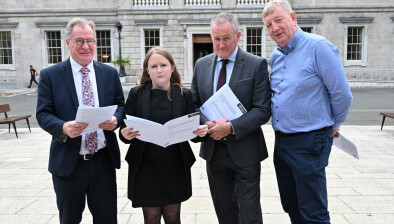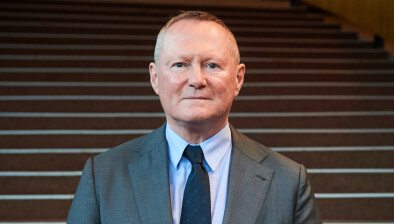Commissions warn continued vigilance required to ensure no diminution of rights in first post-Brexit joint report

Sinéad Gibney
The Irish Human Rights and Equality Commission, the Equality Commission for Northern Ireland and the Northern Ireland Human Rights Commission have launched their Annual Joint Report, their first since they took over their new roles in respect of Protocol Article 2.
It outlines the joint work of the Commissions in providing oversight of, and reporting on, rights and equalities issues with an island of Ireland dimension falling within the scope of Article 2 of the Ireland/Northern Ireland Protocol to the EU-UK Withdrawal Agreement (‘Protocol Article 2’).
In Protocol Article 2, the UK Government made a commitment to protect certain equality and human rights standards in Northern Ireland after Brexit. The two Northern Ireland bodies have been given additional roles and responsibilities to oversee this commitment in Northern Ireland. In addition, they are working in partnership with the Irish Human Rights and Equality Commission to monitor and report on the relevant equality and human rights issues that have an island of Ireland dimension.
The report details the wide-ranging joint work of the Commissions in this context over the period January 2021 – September 2022. In this time, the Commissions engaged with key stakeholders, including Irish Foreign Affairs Minister Simon Coveney and then Minister of State for Northern Ireland Conor Burns MP, to underscore the importance of safeguarding Protocol Article 2.
There were multiple joint appearances before parliamentary committees in Dublin and Stormont to brief elected members on pressing issues – for example, how the UK’s proposed introduction of Electronic Travel Authorisations may impact rights on the island of Ireland.
Commissioner members from IHREC, ECNI and NIHRC met today in Dublin to review progress to date and plan future joint working.
Sinéad Gibney, chief commissioner, IHREC, said: “Given the significant and evolving risks to equality and human rights on the island of Ireland post-Brexit, the joint work of our three Commissions is more important now than ever. As this report shows, we’re working well together, as our organisations have historically done, to deal with this latest set of challenges and to support each other in discharging our mandates to promote and protect human rights and equality for everyone on the island of Ireland.”
Geraldine McGahey OBE, chief commissioner, ECNI, commented: “Over the course of our work, we have identified several new laws that risk breaching the Protocol Article 2 commitments and we will be monitoring these closely as they are implemented. We have also identified EU developments where there is a risk of divergence of rights on the island more broadly including in areas such as work-life balance, the EU accessibility act and gender pay transparency. . We will be making government agencies and legislatures aware of the potential for divergence as its essential that our equality and human rights law keep pace with future EU laws that enhance equality and human rights protections.”
Alyson Kilpatrick, chief commissioner, NIHRC, added: “A key part of our work together over the last 18 months has been engaging with community groups and representatives in cross-border areas including in Armagh and Derry/Londonderry. This enables us to connect with, and learn from, the experience of rights holders, particularly the communities on both sides of the Border whose day to day lives are hugely impacted by Brexit. We have also made regular appearances before parliamentary committees in both Dublin and Stormont, to raise awareness of the rights protected after Brexit and how the no diminution commitment should be factored into policy-making and legislation.”











